San Francisco has always been home to a variety of people. Generations of families have kept the culture and city alive throughout the years, even amidst the changing landscapes of the Bay.
But at the heart of these communities are their elders, facing a growing crisis in affording professional caretakers.
In the San Francisco region, the average price range for people needing home care is $40 to $44 per hour, a hefty amount for anyone who needs to pay for professional caretaking. These high prices have caused the elderly community in the city to struggle despite the demand for the profession.
Whether there is a lack of family living in the same area or people are immobile and unable to work on their own, there are many different reasons why people could need a caretaker. Despite these high demands, there has been a change to try and find affordable prices for caretaking.
CareYaya, a health startup, allows the elderly to find much more affordable rates for caretaking services. The company also allows pre-health college students to gain hands-on experience and hone their skills in their respective fields.
Nearly 200 San Francisco State University students are in the CareYaya program, and several of them have started taking on shifts to care for the elderly. The price depends on the number of hours the customer asks for, ranging from $18 an hour for eight hours to $28 for one to three hours.
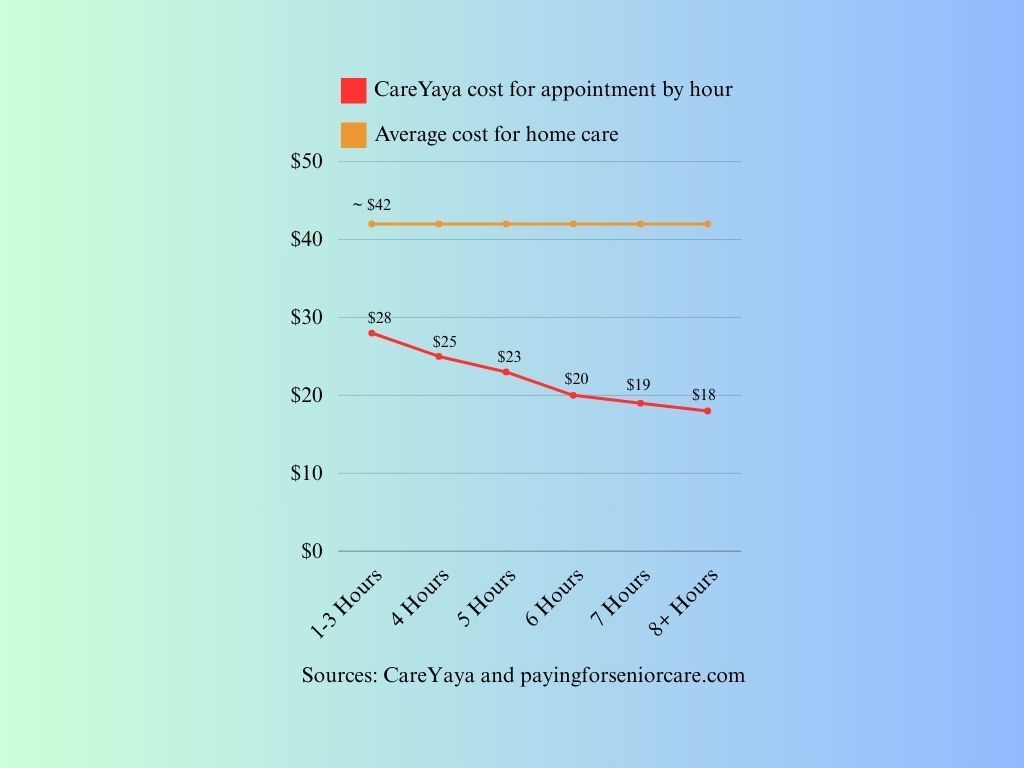
Students in the program receive total compensation from the families that are paying them. CareYaya is a platform where the family and caregiver can make a payment on their own, and the caregiver gets all the money that they work for. For professional agencies, it’s a bit different, and the agency takes some of the money that the caretakers were working for.
The turnover in the caregiving field has been evident over the past couple of years. The lack of compensation and the long hours of work required have been big reasons for the turnover.
Over the past several years, the turnover rate has gradually grown and has caused some concern. The average turnover rate from 2019 to 2021 stayed at around 64-65%, but in 2022 the numbers started to change drastically. In 2022, the turnover rate grew to 77.1% according to HCP’s benchmark report.
Nirvana Tari, CareYaya’s director of social determinants of health and community partnerships, mentioned the daily physical and mental toll that caregivers go through, whether taking care of their family or somebody they just met.
“Nobody wants to be the caretaker for someone in their family because if you are, then that means they are not doing well and it can be really draining and change relationship dynamics,” Tari said. “One of my ambassadors was a caregiver for her grandma for a summer and she said before that, her grandma was her best friend. And she said ‘I can’t stand her anymore we cannot be in the same room because having to take care of her ruined our entire relationship’, that’s so sad and heartbreaking because that is not how it should be.”
Several students at SFSU have expressed how rewarding it has been to be a part of the CareYaya program and how flexible the hours have been for them.
Hosna Zaman, an SFSU psychology student, became the campus ambassador for CareYaya and has since worked several shifts as a caregiver. Zaman has stated that she has enjoyed helping the elderly as it connects her to a different generation.
“You actually have to get into it to understand how valuable it is. I don’t think that as young people — especially people our age — really realize that there’s a caregiving crisis right now, so the fact that I am able to talk to several different people, hear their life stories, and lend a hand for them when they need help, it is just so rewarding,” Zaman said.
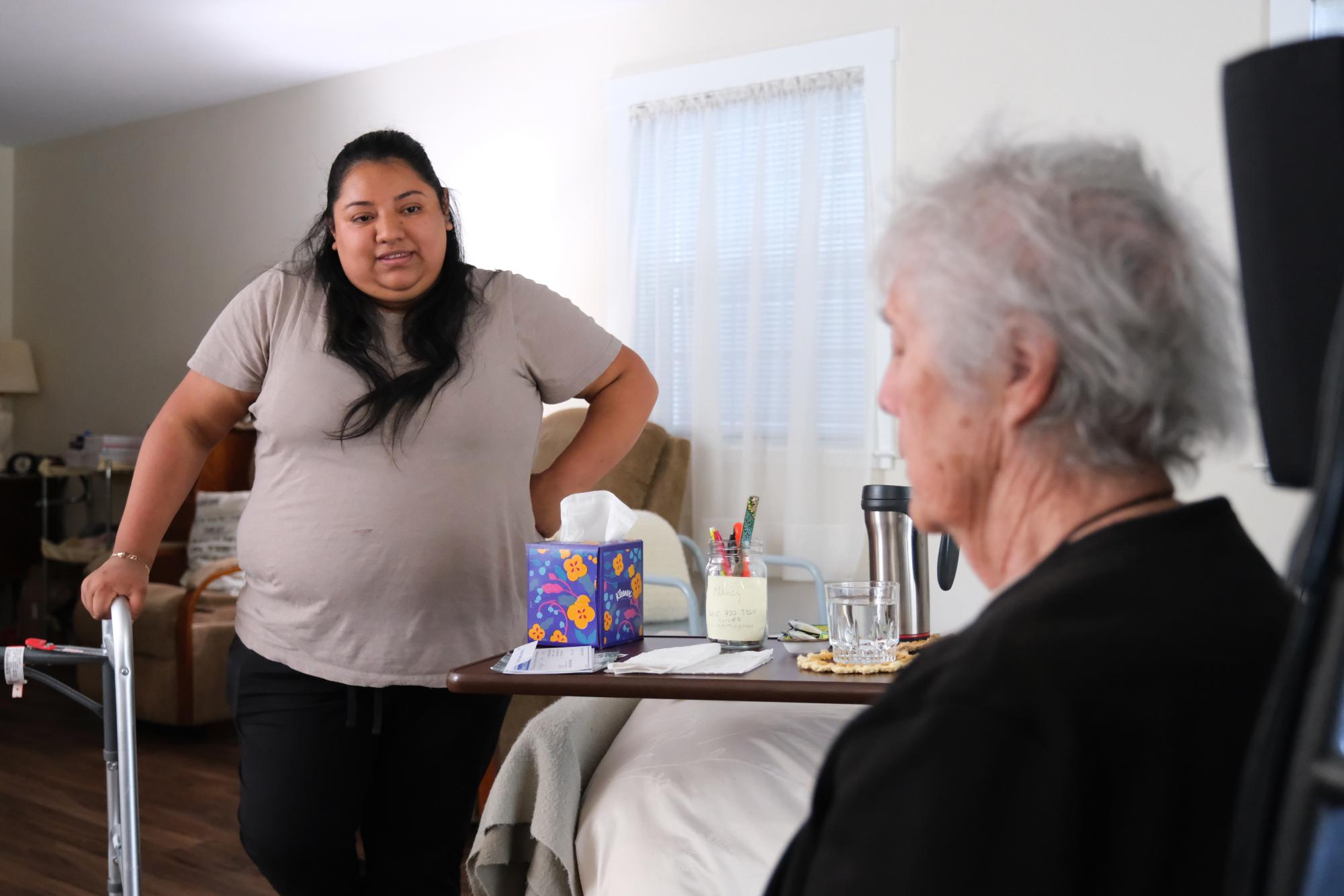
Zaman mentioned that patience is one of the many keys to being a successful caretaker. With the present age gap, she stated that it is very important to establish trust from both sides, whether it is the caretaker or the client.
“When they open up to me, I am like, ‘OK now they trust me’ and I always listen to them very attentively and I ask them questions to just keep the flow going and keep them engaged,” said Zaman on building a connection with her clients. “When that happens, I am like ‘Wow they are telling me all their life experiences from back in the day.’”
With burnout being a huge issue in the caretaking field, SFSU caretaking students can set their work schedules, which has helped them not only deal with burnout but also gives them time to be able to do their school work.
Aline Moran, an SFSU biology student, stated that she has great experiences with the families she has worked with in the past. Taking care of her elders has not been out of the ordinary for Moran, as she has cared for her great-grandmother. Despite her prior experience, Moran finds caregiving nerve-wracking due to the unpredictability of each new client. She remains vigilant and embraces the responsibility with each shift she takes on.
“Not only are you able to make money at your own schedule, your own pace, your own hours, but also you’re able to start gaining skills and experience treating patients, with the right patient hours and so I think that not only will it look good on your resume, but you’re just building that experience that you will eventually need in the future,” Moran said.
A bond was built between Moran and one of her clients, which has given her more knowledge about different topics. Societal and political issues are the root of Moran’s client conversations.
“I think that it makes me feel like a student — like I’m in a lecture. I get to go back and forth with her — she just loves when you ask her questions, it makes time go by faster,” Moran said. “Being with her and involving with her doesn’t even feel like I’m working, so it’s really nice to talk to her. She’s awesome.”
Over the past couple of years, there has been a direct impact on growth in fields related to caretaking. The psychology, biology, and kinesiology departments have all seen upticks in enrollment over the past year at SFSU. The Kinesiology department became an impacted program in 2014, and the numbers went down since fewer people were being admitted. The department had about 500 students, but over the last year, the numbers have gone back to normal ever since the department removed the impaction.
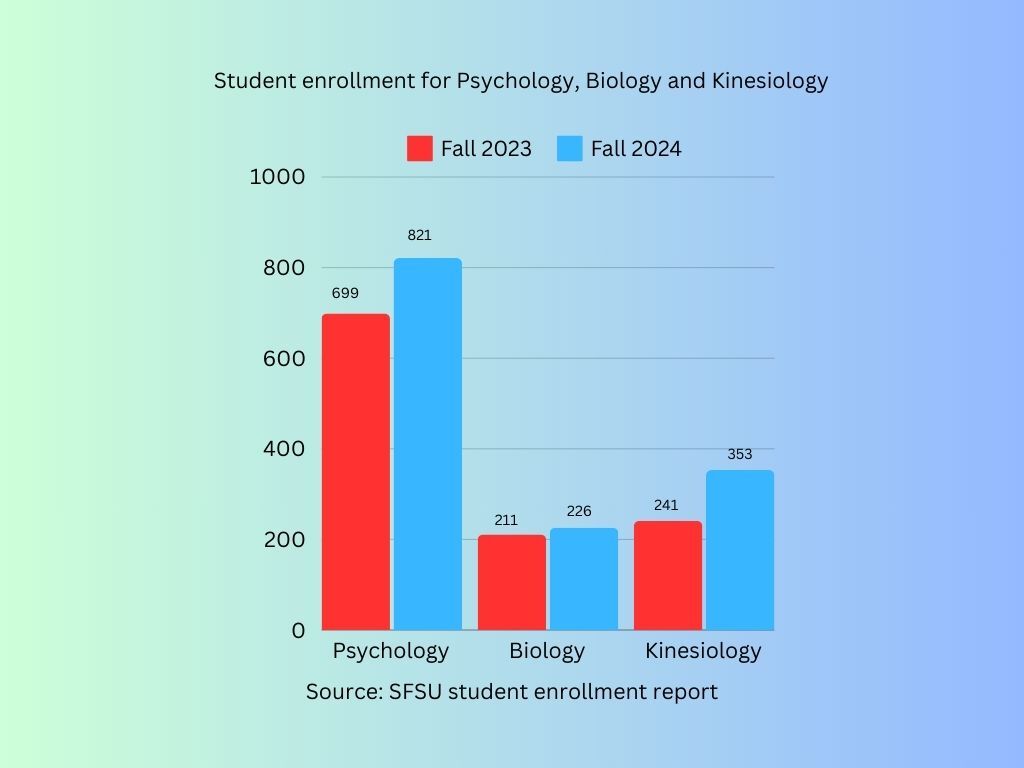
“I think personally, it is a fascinating field, and I think a lot of students think the same, and a lot of students are thinking like PT, and they think ‘Kinesiology is the way to go’, which is great but we also have students that are just interested and think it is cool like the sport science stuff,” said Matt Lee, the kinesiology department chair.
There has been an upward trend in health departments, and one factor is the passion several people possess to get into these fields. Feeling like caretaking is a burden has not crossed Zaman’s mind when she gets continuous shifts.
“I have a passion for helping people so this aligns perfectly with my morals and what I want to do so I do not have a problem with it,” Zaman said. “I never get tired of it, I look forward to each session that I go because I know I am going to do something for the better.”
For caretakers just starting, there was a learning curve along the way. Throughout the journey, getting comfortable with the client’s situation is a main part of getting accustomed to the job.
“I was very nervous going into my first job because I’m showing up at random people’s houses like helping them out, said Crystal Battle, a psychology student. “And then I’ve had clients with illnesses that I’ve never tended with or know how to do, like Dementia or Parkinson’s so it made me nervous but after being there and getting the hands-on learning experience, it makes everything a lot easier.”
Zaman has advocated for a strong foundation of intergenerational relationships, which are being built through programs like CareYaya. Getting closer to the elderly population will not only help interactions between the two different generations but it will also help both generations understand each other’s lives more.
During Zaman’s caretaking, she realized how important it is to care for the elderly. She noticed the life stories and valuable lessons learned during caretaking sessions and did not take them for granted. Zaman lives an hour and a half away from her grandmother and recognizes how difficult it can be for the elderly to be alone.
“I started to really understand and realize how important it is that we are fostering those intergenerational relationships with our elders and this kind of hits home for me because my grandma right now lives alone,” Zaman said. “We have relatives who live in the same city as her but I am starting to become aware of how much it is impacting her and her mental health.”
The sense of reward has been a key talking point between workers and it has helped them go through the shifts. Zaman also stated that caregivers should always remember why they are going to these jobs.
“I know for a lot of caregivers that I’ve heard about, they also say that it’s very rewarding. But because there’s so much burnout and the professional caregivers and nurses, I think that again, it kind of sways from like the purpose of like, why you’re supposed to be there and you’re supposed to help people,” Zaman said.
Mental health is a big aspect of caregivers’ lives that is underappreciated in the industry. Working with the elderly throughout the day and returning home to do school work takes a toll on some of these students.
“I think over time you develop your mental stability and also with your coworkers, they can play a really huge role in helping you become more emotionally strong,” said Emily Sibrian, an SFSU nursing student.
Pride and passion keep Tari working every day to create a change for the better in the caretaking industry. The work Tari is doing is enjoyable to her and fuels her to go back to work every day to improve the landscape of caretaking.
“When I get home, I am not drained, I am tired as hell but I am not dreading to go back to work the next day because I get to see the impact I am making on a day-to-day basis so I am excited to go back to work,” Tari said. “This company is actively changing lives, people are living better, resting better, and just feeling better and that sort of makes me happy.”
CareYaya strives for an environment that is win-win for both the client and caretaker. There has to be a sense of passion involved with the field they are entering. Zaman’s main goal is to become a therapist, which has gone hand in hand with the caretaking work she has been doing.
“My main goal is to create a better future for caregiving to create a more equitable space for both health care and education,” Tari said.




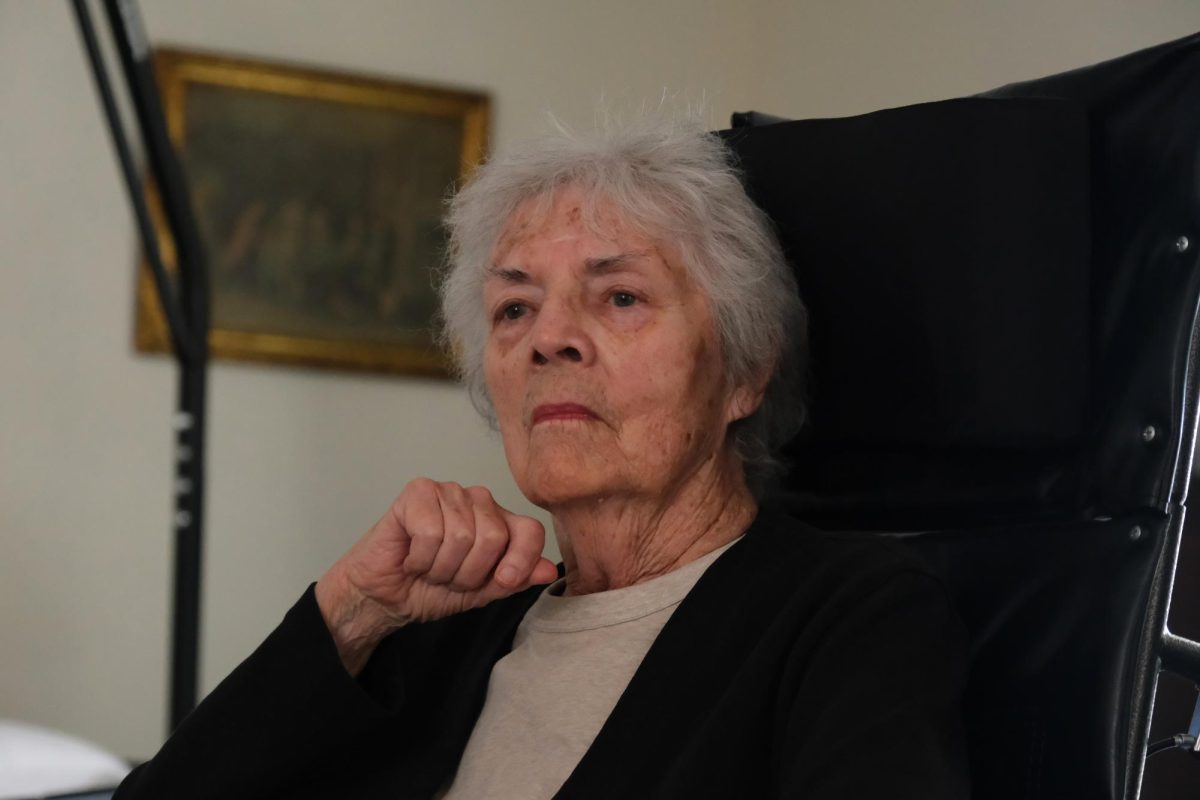
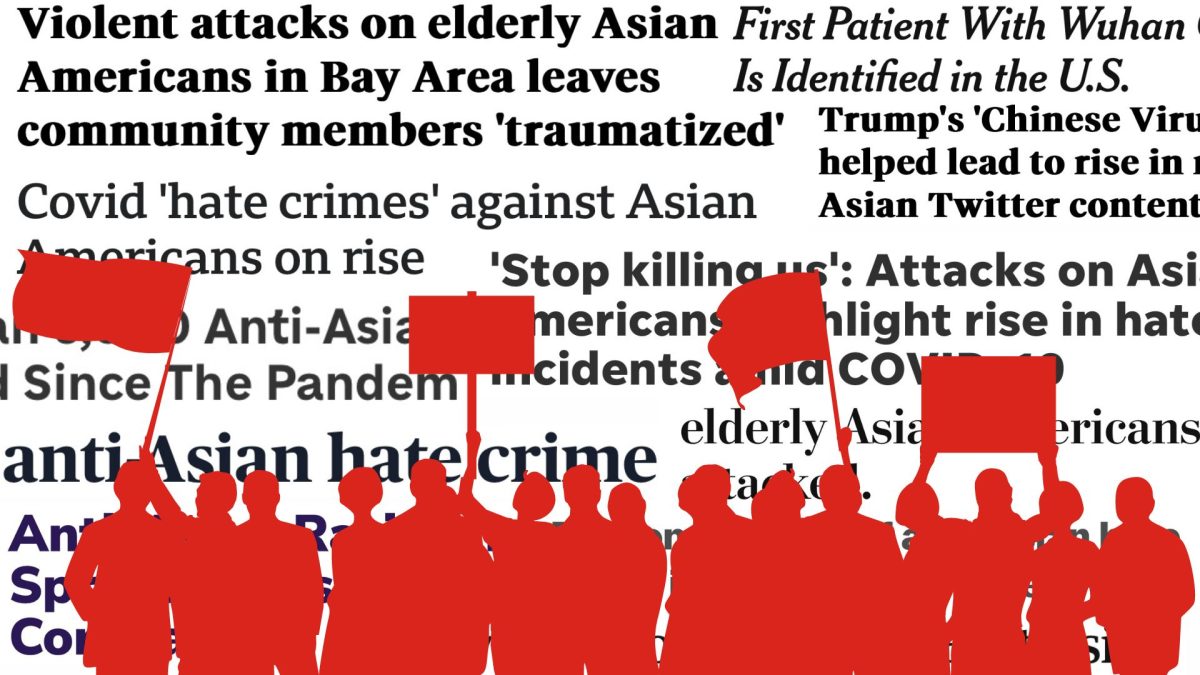
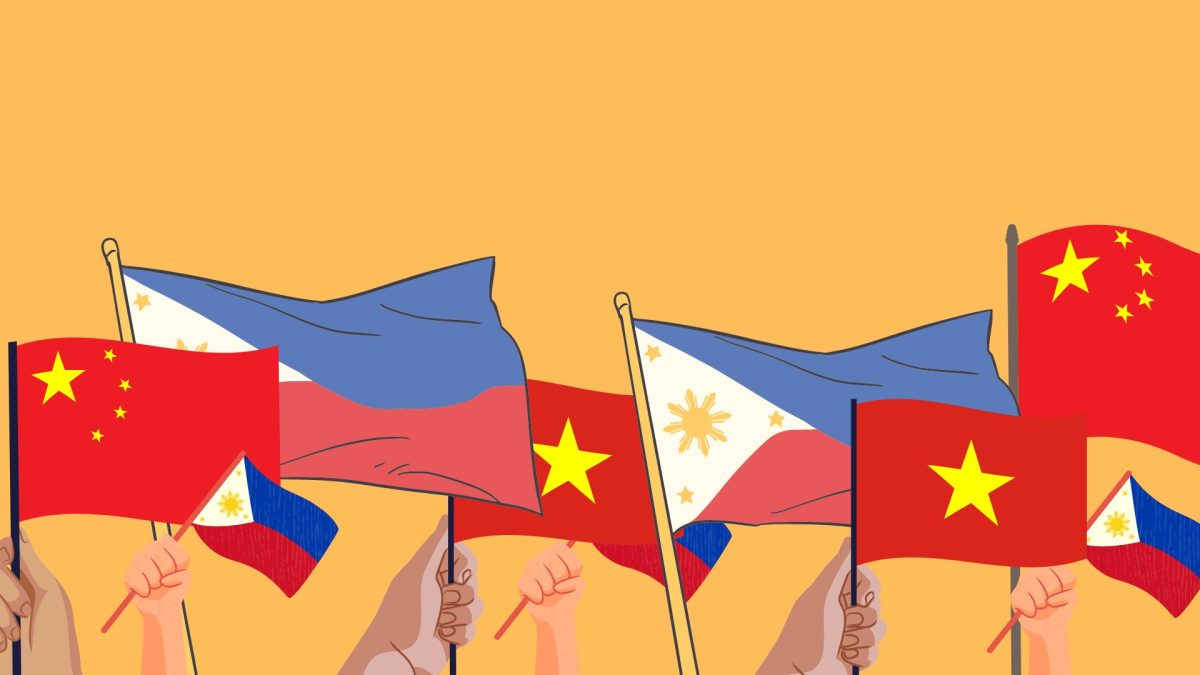

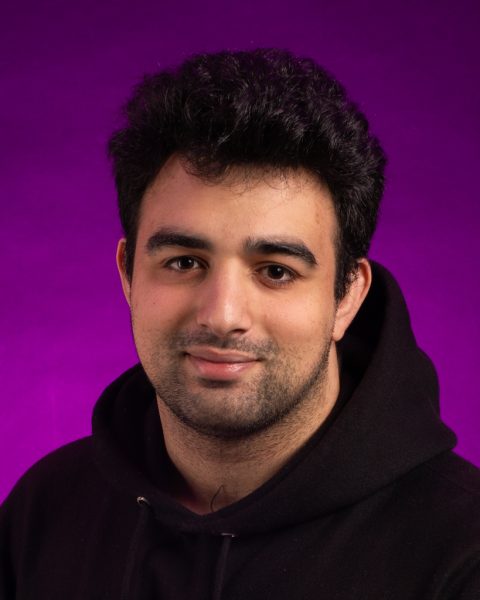
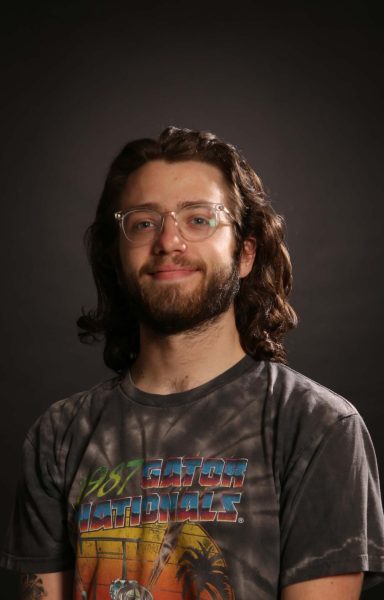
Caroline McGaughey • May 27, 2024 at 12:25 am
My spouse was diagnosed with Parkinson’s disease. His symptoms included excruciating calf pain, muscular aches, tremors, slurred speech, frequent falls, loss of balance, and trouble standing up from a seated posture. After six months on Senemet, Siferol was given to him in place of the Senemet. It was also at this period that he was diagnosed with dementia. He began seeing hallucinations and became detached from reality. With the doctor’s approval, we stopped giving him Siferol and chose to try the Ability Health Center PD-5 protocol, which we had previously investigated. After three months of therapy, he has made significant progress. The illness has been completely contained. There are no symptoms of persistent twitching, weakness, tremors, hallucinations, or muscle soreness. The PD-5 Protocol was obtained from ability health centre . com. Though you still need to determine what works best for you, I thought I would share my husband’s story in case it could be helpful. Greetings and prayers